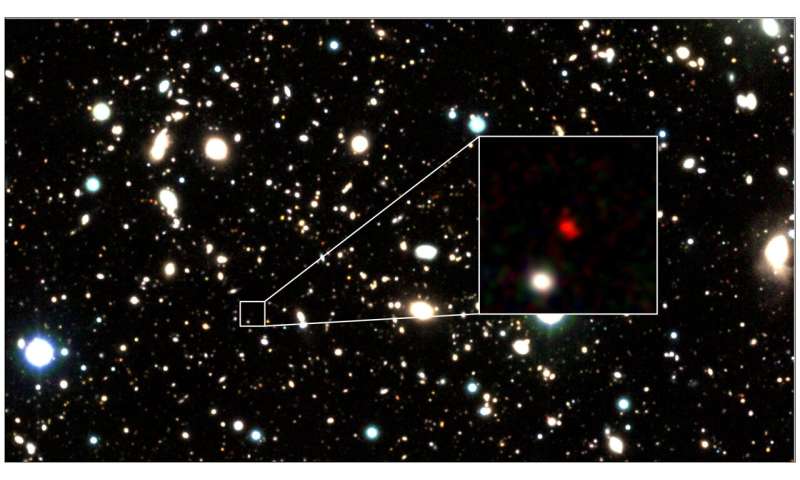Best of Last Week—The farthest galaxy ever observed, using hydrogen to make steel, a new COVID-19 vaccine

It was a good week for space science as an international team of researchers detected a galactic space laser. The powerful radio wave, known more technically as a "megamaser," was spotted using the MeerKAT telescope in South Africa. Another international team spotted the farthest galaxy ever observed. Called HAD1, it was measured to be 13.5 billion light years away from Earth and could hold a supermassive black hole 100 million times the mass of the sun. Another international team found a protoplanet that could upend planet formation models. Data from Hubble showed the Jupiter-like planet to be forming through an "intense and violent process," rather than via disk instability.
In technology news, a team at Hydrogen Breakthrough Ironmaking Technology in Sweden reported on progress they are making toward switching from burning coal to produce steel to burning hydrogen produced via renewable resources. Also, a team at Washington State University demonstrated a way to use honey to make brain-like computer chips. They used the material to create a memristor for use in a neuromorphic computer. And a team with members from United Arab Emirates and the United Kingdom developed a 3D-printed heat exchanger that was more efficient than conventional designs. Also, a team of engineers at the University of Pittsburgh Swanson School of Engineering discovered a hardware security vulnerability on Android phones—the GPU on some models could be used by nefarious characters to swipe a user's credentials.
In other news, an international team of researchers found evidence showing that a widely used food additive affects the human gut microbiota. Xanthan gum, used in products such as baked goods, ice cream and salad dressing, was found to lead to modifications in gut microbe DNA that allows it to digest the additive. And a team at Rice University found a way to turn hard-to-process plastic waste into a carbon-capture sorbent. The chemical technique involved heating the plastic with potassium acetate.
And finally, a team at MedUni Vienna announced that they had developed a new vaccine to protect against SARS-CoV-2. It has been shown to be effective against all variants known to date.
© 2022 Science X Network